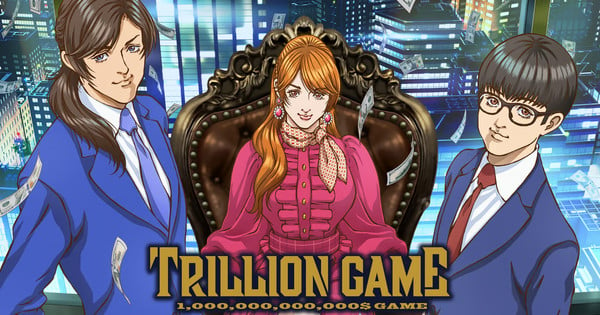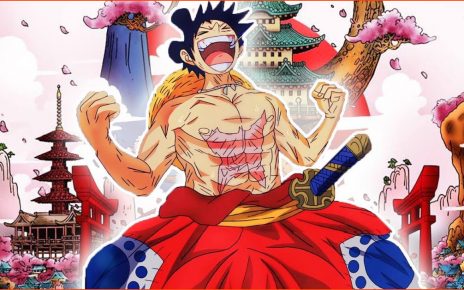In the dynamic realm of anime streaming, Trillion Game is an intriguing blend of comedy, drama, and unpredictable storytelling over its 13-episode arc. As we navigate through the anime adaptation of the acclaimed manga by Riichirō Inagaki and Ryōichi Ikegami, the series poses a unique narrative challenge, blending audacious plans for astronomical wealth with a spotlight on its morally questionable protagonist. Here, we embark on a deep dive into the complex world of Trillion Game and examine its highs, lows, and, perhaps, the moral provocations it presents.
Meet the Unlikely Duo: Haru and Gaku

Trillion Game pivots on the partnership between two diametrically opposed young Japanese men, Haru and Gaku, who embark on an ambitious journey to become the world’s first US dollar trillionaires. Haru, the cavalier and morally ambivalent charmer, pairs with Gaku, the reserved IT wizard wielding a strong sense of justice. Despite their contrasting personalities, their skills complement each other, creating a tumultuous yet functional synergy that fuels their rise in the ruthless world of big business source.
Stream on Crunchyroll: The series, exclusive to Crunchyroll, leverages its platform for a global audience, showcasing the battle between scruples and stark ambition while sparking debate over modern capitalism’s ethical landscape.
Unravelling the Plot: Humor or Hubris?
From the outset, Trillion Game appears as an over-the-top rags-to-riches saga driven by Haru’s erratic decisions. Episode by episode, viewers are drawn into a whirlwind of engagements, from fictitious AI ventures to baffling corporate takeovers, strategies seemingly orchestrated on whims of insanity. The story attempts to balance humor with audacity, delivering twists that skirt believability, testing audiences’ thresholds for logical storytelling.
Haru’s escapades characterize him as more a force of nature than a person—a livewire whose motives and strategies remain as opaque as his endgame. This makes the series both compelling and contentious, as viewers attempt to decipher whether they’re witnessing a grand jest or a serious take on unabashed ambition.
Gaku: The Conduit of Perspective
Gaku, narrating from a future of success, reminisces his daunting yet transformative journey alongside Haru. Yet, his limited access to Haru’s machinations casts him scarcely more than a spectator—and at times, this void of insight reduces Gaku to a narrative device, a classic foil echoing sentiments of confusion shared by the audience.
Critique: Between Discomfort and Disdain
While the series aims for entertainment, the core subject—pursuit of unbridled wealth at others’ expense—elicits visceral discomfort. Haru’s character embodies the archetype of a corporate shark, raising ethical questions about the virtues of such depictions. It resonates with ongoing societal dialogues concerning wealth disparity, though the anime appears unreconciled with these themes, often celebrating the very ideals it superficially satirizes.
Visual Storytelling: A Mixed Medium
Artist Ryōichi Ikegami’s reputation as a stalwart of manga illustration is well-deserved, yet the transition from page to screen results in stylistic inconsistencies. The semi-realistic designs embody the paradox of the series, struggling to balance the intricate world Inagaki envisions. Despite these visual challenges, the series retains a distinct, if somewhat disjointed, aesthetic that contributes to its unique place in this anime season.
Searching for Resolution
As tension mounts, the series hints at a looming fracture between Haru and Gaku—an intersection that may change their trajectory dramatically. The potential for narrative depth resides here, with whispers of moral reckoning or subversion that may yet surprise audiences insistent that Trillion Game is more than a superficial critique of corporate manipulation.
Though visually and morally contentious, Trillion Game offers moments of sharp humor and plot misdirection edging on brilliance, ensuring its place as a subject of discussion among diverse audience groups.
Final Thoughts
In sum, Trillion Game stands as a provocative entry into the universe of anime, a curious reflection on avarice and morality in modern economics. Its cavalier depiction of wealth chases introduces thought-provoking narratives, although it may draw ire for its apparent glorification of less savory characteristics of capitalism. Whether it will subvert the expectations it establishes remains to be seen, providing viewers with an engaging reason to delve deeper into Haru and Gaku’s journey. For any enthusiast eager for a blend of skepticism and entertainment, Trillion Game offers a journey as unpredictable as its protagonist.
By exploring the layers of this bold series and confronting both its criticism and commendation, Trillion Game may reveal complexities reflective of our contemporary zeitgeist, leaving us to contemplate the price of ambition versus integrity in an ever-evolving world.



